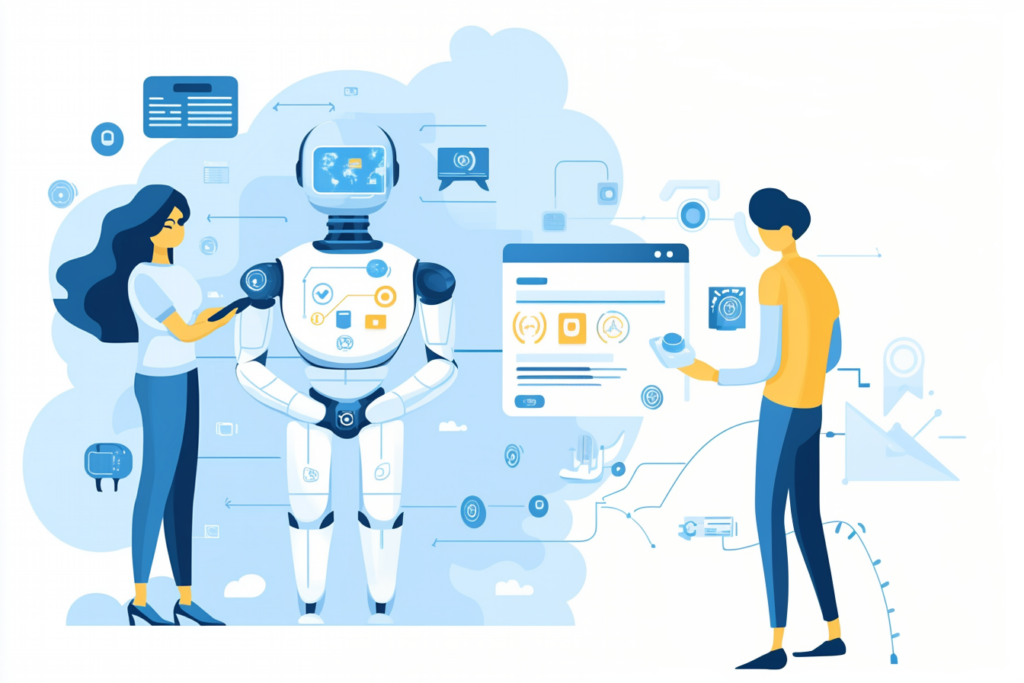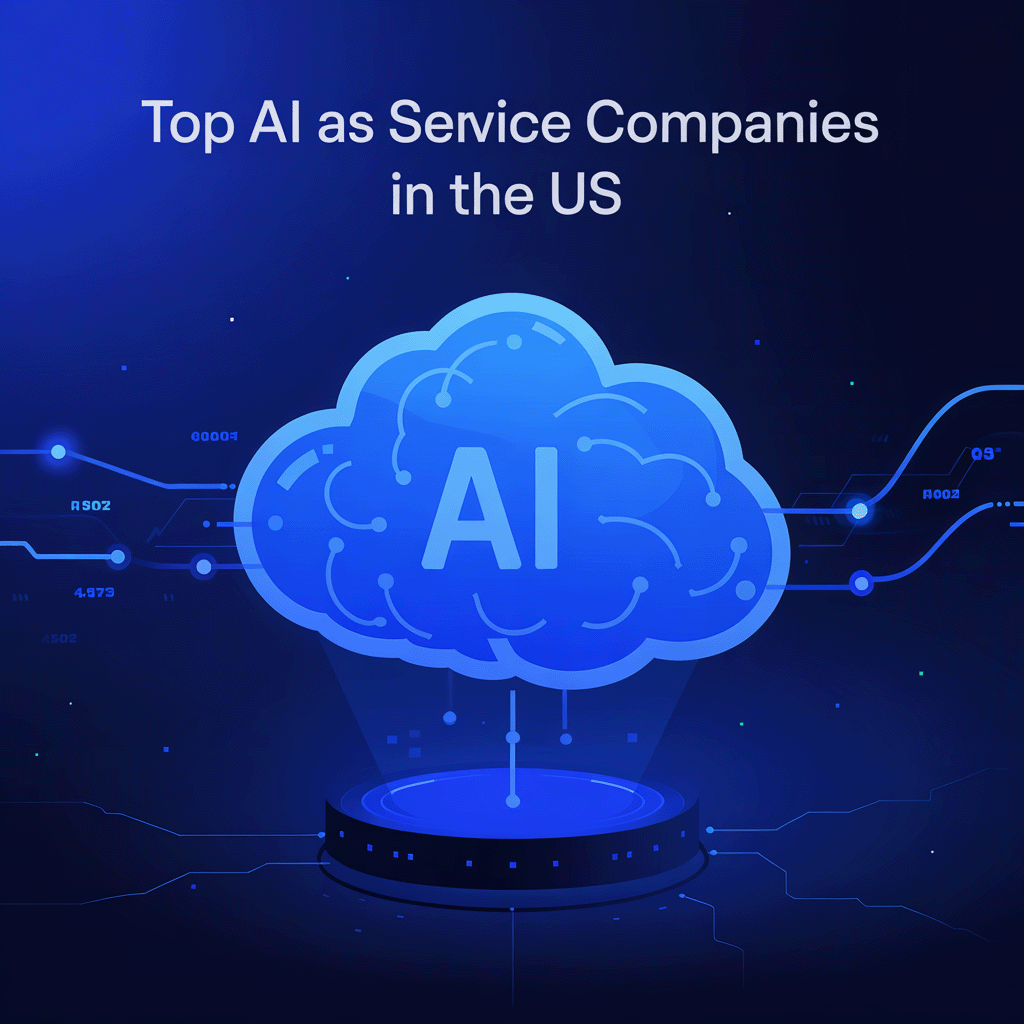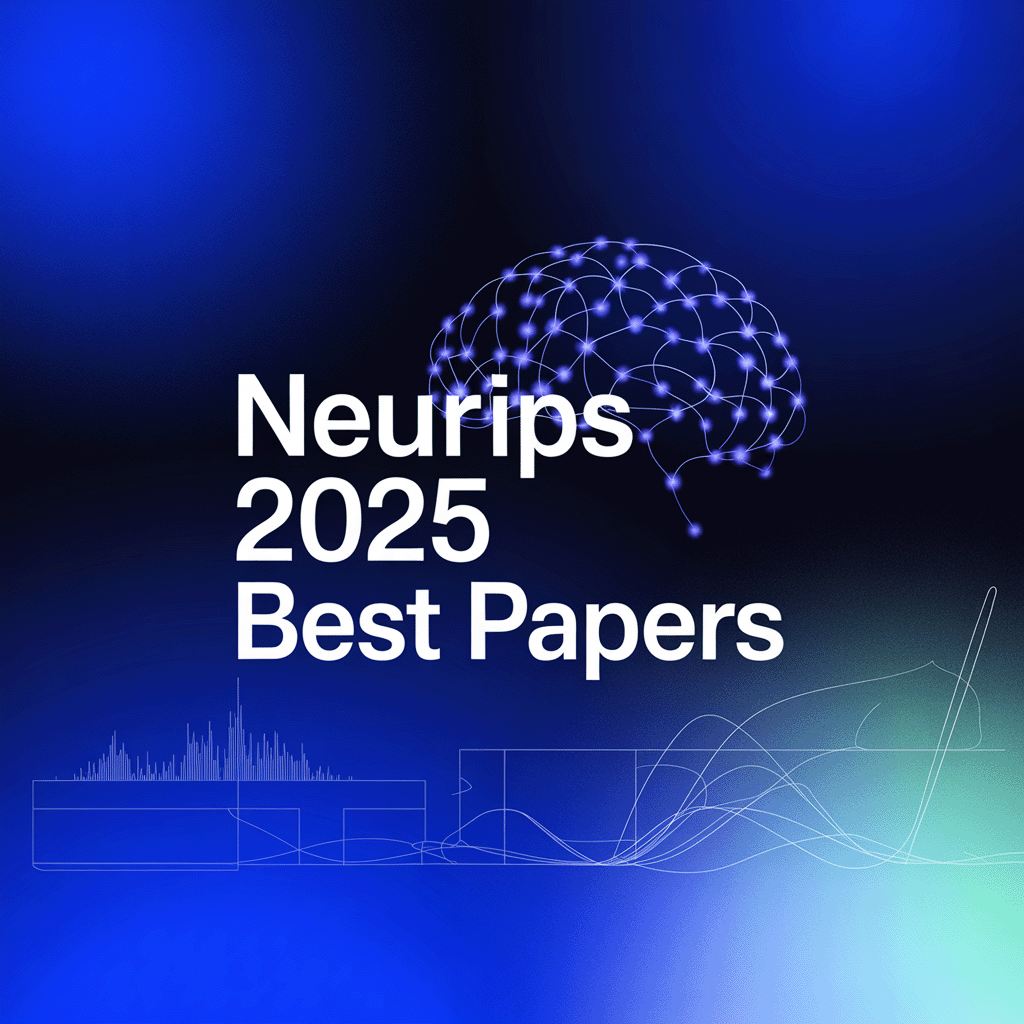More than 61% of marketers have already started using AI for marketing strategies. Out of them, 71% believe it has the capability to outperform humans, according to an AI Marketing Benchmark Report. Even though content generation is among the initial use cases of artificial intelligence, marketing analytics is rapidly evolving and quickly becoming one of the key areas in which AI is being used.
What’s more, we live in an era where personalization has become expected, making it necessary for businesses to stay competitive. Today, users expect ventures to comprehend their preferences and deliver services, products, and content accordingly in real time. Hence, companies are under immense pressure to tailor their marketing efforts to meet the unique needs of each customer.

If you are still not convinced about the use of AI in this area, this blog will definitely do it. Here, we discuss the key technologies related to AI in marketing analytics, its benefits, and how it is used. Finally, we address challenges and ethical considerations that all businesses using this technology for marketing analytics must take into account.
Keep reading to flow with the high-tech wave.
What is AI in Marketing Analytics?
AI-driven analytics refers to using artificial intelligence technologies to collect, analyze, and interpret large datasets associated with marketing. Using AI, businesses can automate their marketing processes, explore new insights, and make data-driven decisions at a speed and scale that was earlier unimaginable through manual work.
By analyzing data from numerous areas, such as purchase history, social media engagement, and website traffic, AI can aid marketers in comprehending customer preferences and behavior in real time, which helps them keep their marketing strategies and campaigns up-to-date.
Key Technologies
Before understanding the benefits of AI-based analytics, let’s first understand the key technologies behind artificial intelligence that allow for such efficient, customized marketing in real time. Three major AI technologies are discussed below: machine learning, natural language processing, and predictive analytics. Each of these contributes to marketing analytics when businesses integrate artificial intelligence into their platforms and processes.
-
Machine Learning (ML): A subset of AI, machine learning in marketing analytics enables systems to learn and improve from experience and historical interactions without having to be programmed specially. Machine learning services can anticipate customer behavior, like which ads consumers are most likely to click on or which products they are most probably going to purchase.
-
Natural Language Processing (NLP): Natural Language Processing helps computers to comprehend, analyze, and respond to human language. In data marketing analytics, NLP analyzes text-based data, such as social media comments and customer reviews. This helps marketers gain insight into customer sentiment, further being able to customize content according to their needs and desires.
-
Predictive Analytics: AI-driven analytics is incomplete without predictive analytics. This branch of artificial intelligence leverages historical data to predict future consumer behavior. This aids marketing agencies in anticipating customer needs, further enabling them to deliver recommendations, offers, and content that resonates the most with them, and that too, at the right time.

How is AI Used in Marketing Analytics?
The capabilities of artificial intelligence make it an extremely valuable tool in marketing analytics. Below are some of the ways in which AI can be used in this area. We have also explained how you can implement AI in marketing and examples of how to use it.
Personalization with AI
Personalization is among the key pillars of modern marketing. By providing customized experiences, companies can form deeper relations with their customers, resulting in maximum satisfaction, revenue, and loyalty. It is AI analysis today that can attain this level of personalization.
-
How AI Personalizes
-
Recommendation Engines: Recommendation engines driven by artificial intelligence have the potential to analyze browsing habits, purchase history, and customer behavior to recommend relevant services and products. These engines learn from historical interaction, continuously enhancing the accuracy of suggestions. Businesses such as Netflix and Amazon have mastered the art of using artificial intelligence to tailor recommendations. For instance, Amazon uses AI to suggest products according to a consumer’s browsing history and previous purchases. Similar to Amazon, Netflix uses a recommendation engine to suggest ideal movies and TV shows. The suggestions are based on the preferences and viewing habits of users.
-
Dynamic Content: AI-driven analytics enable marketers to produce dynamic content in real time based on individual user preferences. Whether it is tailored email content or personalized product recommendations on an e-commerce site, AI can do it all. In fact, it can customize the experience to fit the unique individual’s behavior and needs. Dynamic content is known to boost engagement and drive conversions by ensuring that customers get to see the most relevant content at every touchpoint.
-
-
Example: Sephora, a global beauty retailer, is one of the best examples of companies that excel in AI-powered personalization. The company uses artificial intelligence to provide customized product suggestions using the mobile application. Interpreting a user’s beauty profile, skin type, and purchase history, it offers personalized recommendations that are relevant to individual customers. This leads to higher engagement and, hence, sales.
-
Benefits: Personalized experiences make users feel like valued customers, which further increases loyalty, customer satisfaction, and sales. By using AI in marketing analytics, companies can ensure customers feel worthy and understood, resulting in long-lasting relationships and deeper connections.
Enhancing Customer Engagement with AI
Artificial intelligence does not just personalize customer experience; it also boots customer engagement. Given below are some AI tools that allow engagement s
-
AI Tools for Engagement
-
Chatbots: AI-powered chatbots, like ChatGPT or Bing, have revolutionized the customer service sector—they offer 24/7 support, answer general questions, and even guide customers through the process they find trouble in. Businesses building custom chatbot experiences can explore Claude AI integrations to add advanced reasoning capabilities into their customer service workflows, though this requires developer resources to connect Claude’s API with existing marketing and CRM systems. These chatbots use Natural Language Processing to comprehend and respond to user queries in a conversational, natural manner. The interaction feels like that of humans. Furthermore, AI has the ability to provide quick responses that improve customer experience, resulting in quicker problem-solving and augmented satisfaction.
-
Email Campaigns: Artificial intelligence significantly optimizes email marketing campaigns by analyzing customer data and sending tailored messages at accurate times. For example, AI can identify the best time to send an email to every recipient based on the history and increase the likelihood of opening and engaging with the email. In addition, AI can customize the content sent in the email, ensuring that each user gets the most relevant information and offers.
-
Social Media: Last but not least, social media platforms, like Instagram, Facebook, X, and more, have the maximum customer data, which is highly beneficial for consumer data analysis. AI tools can monitor conversations on social media in real-time, analyzing user sentiment, determining trends, and allowing brands to respond to concerns, questions, and comments in a personalized way. This helps companies stay engaged with their audience and build a stronger community.
-
-
Example: One of the best marketing use cases is that of Coca-Cola. The popular beverage company has been using artificial intelligence to boost social media engagement. By analyzing conversations regarding its products and brand on platforms such as Instagram and Twitter, the company can instantly determine trending topics and respond to real-time consumer feedback. This improves the presence of Coca-Cola on social media while also helping it develop stronger customer relationships.
-
Benefits: AI-driven marketing tools enhance customer engagement by providing relevant, timely interactions across multiple platforms. Through various means like social media monitoring, email campaigns, and chatbots—AI ensures customers obtain the information and support they are looking for, resulting in improved customer satisfaction and engagement.

Implementing AI in Marketing
If you are planning to integrate AI in marketing analytics, getting started can seem to be a hectic process. With the expertise to look for, the right tools to figure out, and budget allocations, there’s so much to do for AI implementation in business. However, it is not as difficult as it sounds. And with the right help, it becomes way easier.
By following the given structured approach, you can make the process of AI integration completely seamless.
-
Getting Started with AI-based Analytics
-
Choosing Tools: The primary step to adopting artificial intelligence is picking the right AI tools. There are numerous AI-powered marketing platforms, such as Salesforce, Marketo, and HubSpot, each adding different values to businesses. Based on your business’s specific aim and needs, look for the capabilities and characteristics of the platform. It can be anything from improving email marketing to optimizing customer segmentation. Just remember, it should match your company’s marketing goals. If you are not sure how to choose the right tools according to your company goals, you can use the AI services offered by LITSLINK to obtain an expert point of view.
-
Integration: Once you have chosen the necessary AI tool, it is time for you to integrate AI with your business’s current marketing processes and platforms. Several businesses use a combination of social media management tools, email marketing platforms, and customer relationship management software. Again, choose wisely based on your company goals. Making sure that AI can function seamlessly with these platforms is crucial to improve its effectiveness.
-
Measuring Success: Finally, the last step is to measure success using KPIs. Like all other marketing strategies, the success of AI-driven marketing is also measured through key performance indicators. Metrics like customer satisfaction scores, conversion rates, and customer engagement rates can aid businesses in tracking the impact and effectiveness of their AI strategies. Regularly monitoring these KPIs enables businesses to perform successful data-driven marketing with artificial intelligence. For instance, a particular KPI Spotify monitors is user engagement, calculated by how often consumers discover new artists, share songs, and interact with playlists. Through AI, the platform analyzes large amounts of user data in real time to recommend personalized music, like Daily Mix and Discover Weekly. AI-driven insights can aid Spotify in anticipating the kinds of songs users are most likely to enjoy. This further improves user retention and satisfaction.
-
-
Example: A company seeking to improve its email marketing campaigns may begin by using an AI tool to tailor its email content and optimize send timings. By monitoring conversion rates, click-through rates, and open rates, the company can identify the impact of AI on its campaign performance and accordingly manage the strategy.
Benefits of AI in Marketing Analytics
Adopting artificial intelligence in marketing analytics provides numerous benefits that can give businesses a competitive edge, making them stand out in the market. Businesses are continuously transforming as companies get valuable insights into customer behavior, trends, and preferences.
While endless possibilities and innumerable advantages exist, the most impactful ones include enhanced accuracy, increased efficiency, and scalability. Each of these contributes greatly to improving how ventures analyze data, refine their marketing efforts, and indulge with their customer base.
-
Enhanced Accuracy
Among the most significant advantages of using AI for marketing is the ability of AI to improve accuracy. Conventional methods of data analysis usually require human interpretation and manual processes. This may lead to decisions and marketing strategies based on poorly analyzed data.
AI algorithms are capable of analyzing huge datasets at a pace that is beyond the capabilities of humans. This enables ventures to delve deeper into consumer data, recognize patterns, and predict future behavior more accurately.
For example, AI-driven analytics can analyze previous customer behavior to predict future actions, including the likelihood of responding to a certain marketing campaign and purchase intent. This aids marketers in creating more effective strategies that are targeted toward the right customers.
-
Increased Efficiency
Another crucial advantage of artificial intelligence in marketing is the substantial improvement in efficiency. Marketing companies are usually burdened with repetitive tasks that are monotonous and time-consuming. These include campaign optimization, data reporting, and customer segmentation. Using AI, businesses can now automate these processes, further freeing up the time of marketing team members.
AI can also adjust campaigns in real time according to customer responses. If a certain marketing message does not relate to an audience, it can quickly identify this and make adjustments necessary for the campaign to resonate with them without human intervention. This can be anything from modifying the message to changing the target audience.
AI-powered tools are also known to boost efficiency when it comes to content creation. For instance, AI can analyze previous campaigns to identify which visuals, headlines, and content formats are most likely to perform well, refining future marketing content accordingly. This enables businesses to launch highly targeted campaigns quickly with fewer resources.
-
Scalability
With the growth of each business, its marketing needs grow as well. Manual management of campaigns, personalized experiences, and customer data at scale can quickly become daunting and overwhelming, given that the customers keep adding on and, hence, providing new data. This is why AI-based marketing optimization is ideal for scalability.
Unlike humans, artificial intelligence can process and interpret large amounts of data from millions of customers without getting tired, making errors, or reducing efficiency. Whether customizing marketing messages for an audience from across the globe or tailoring content for a small part of users, AI can easily manage all sorts of tasks. This scalability allows businesses to continue offering relevant, personalized experiences to customers as they grow without compromising quality.
For instance, a small-medium enterprise using AI-driven recommendation engines can provide hundreds of customers with the same level of customized product recommendations. Similarly, AI can handle marketing campaigns across numerous platforms, such as websites, social media, and email.
Finally, AI can also scale sales data analysis, social media engagement, and customer feedback to offer comprehensive insights that further lead to data-driven marketing decisions. With the expansion of businesses, AI ensures that marketing efforts continue to be effective, adaptable, and agile.
Challenges and Considerations
Despite the numerous benefits and great potential of AI-based marketing optimization, businesses must be mindful of the practices they are performing and how they use AI in marketing analytics. There are severe challenges concerning data privacy and bias, as well as ethical considerations regarding trust and transparency. These are discussed briefly below.
-
Common Challenges
-
Data Privacy: Since AI-driven analytics heavily relies on data, the use of customer data and its privacy are major challenges. Businesses using AI must comply with data privacy regulations like the California Consumer Privacy Act (CCPA) and the General Data Protection Regulation (GDPR). If a company fails to protect its customers’ data, it can not only lead to loss of customer trust and decreased revenue but also to legal penalties.
-
Bias and Fairness: AI algorithms work according to the data on which they are trained. Hence, the AI model may generate unfair results if there is a hint of bias or unfairness in the training data. This is why businesses adopting artificial intelligence for marketing must perform regular audits of their AI systems to ensure they are completely fair and free of bias. This should especially be ensured for decisions like targeting, pricing, and segmentation. Otherwise, bias in training data can lead to amplified biased results by AI.
-
-
Ethical Considerations: Finally, ethical considerations are crucial when running a business, and this is no different in the case of implementing AI in marketing analytics. Businesses must be entirely transparent with the customers — the users must be aware of the ways in which the company is utilizing their data. Ventures must also ensure that the AI models are working in their customers’ best interests. Thus, ethical considerations like maintaining customer trust and avoiding any malpractices must always be prioritized while implementing AI.
Wrapping Up
Integrating AI in marketing has proven to be successful in improving business processes and customer response. The technology has allowed companies to personalize their marketing content to best suit customer preferences and needs, further enhancing engagement and sales. From social media monitoring to chatbots to recommendation engines, AI has completely transformed the ways in which customers interact with businesses.
Thus, by leveraging AI-driven marketing, companies can improve their efficiency and accuracy regarding marketing efforts, leading to improved loyalty, better customer satisfaction, and revenue growth.
So, if you are a business owner who wasn’t sure about adopting AI for marketing, now is the time. Consider hiring LITSLINK to help you choose the right technology and tools and integrate AI into your existing business systems and processes. Remember that the right, experienced group of professionals can also help you avoid major implementation challenges.
The future of marketing is clearly data-driven and AI-powered. It is crucial for businesses to stay up-to-date with evolving technologies in order to stand out in the market and gain a competitive edge over other brands in the industry.





